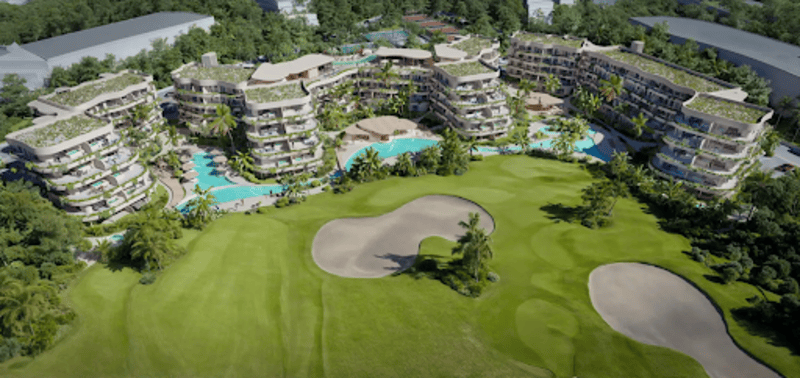The Dominican Republic has become one of the Caribbean’s most appealing real estate markets, offering investors a rare combination of stability, growth, and incentives. Its robust economy and record tourism provide a strong foundation for demand, while government policies, most notably the CONFOTUR law, deliver powerful tax exemptions that reduce costs and enhance profitability. These financial advantages, together with steady market performance, accessible financing, and secure ownership rights, make the DR an increasingly attractive option for international investors seeking both returns and long-term value.
Tax Incentives Under the CONFOTUR Law
The most significant financial benefit for real estate investors in the DR comes from Law 158-01, commonly known as the CONFOTUR law. Designed to promote tourism development, it provides up to 15 years of tax exemptions for qualifying projects. These incentives are particularly attractive to foreign investors who want to maximize returns while minimizing costs.
For individual buyers purchasing within a CONFOTUR-approved development, the benefits are extensive.
Waiver of the Title Transfer Tax
Normally, buyers pay a 3% transfer tax on the property’s value at purchase. Under CONFOTUR, this tax is fully waived, allowing investors to save thousands of dollars at the point of acquisition.
Exemption from Annual Property Tax (IPI)
The standard annual real estate tax of 1% on property values above a set threshold does not apply for up to ten years (and in some cases, up to 15 years). This eliminates one of the largest recurring costs of ownership.
Capital Gains Advantages
When selling a CONFOTUR-certified property, the usual taxes that would reduce profits are avoided. If sold within the exemption period, benefits also transfer to the buyer, making the property even more marketable.
Quality Materials
Importantly, part of the CONFOTUR law allows developers to import premium construction materials from Europe and other regions duty-free, meaning that any CONFOTUR-approved project typically incorporates higher-quality materials and finishes.
These exemptions mean that investors can legally avoid paying property taxes for a full decade or more, which greatly improves overall ROI and makes the DR’s real estate market more competitive compared to other regional destinations.

Investor-Friendly Ownership and Residency Options
Foreigners enjoy full property rights in the Dominican Republic, with no restrictions on ownership. This legal transparency provides added security for international buyers. Additionally, real estate investment can serve as a pathway to residency. Through the Residency by Investment program, individuals who invest at least US$200,000 in property can fast-track their residency application, offering both lifestyle and tax planning advantages for those seeking a long-term presence in the country.
Strong Market Performance and Rental Yields
While tax breaks provide immediate savings, the Dominican Republic also offers consistent financial returns through rental income and property appreciation. Tourism has reached record highs, generating year-round demand for short-term rentals in popular destinations.
Occupancy rates in tourist hubs often range from 60% to 75% year-round. In Punta Cana, Bávaro, and the North Coast, short-term rentals commonly deliver 6% to 12% annual yields, with villas in gated communities reaching up to 10%. In Santo Domingo, long-term apartments generate steady rental returns of 5% to 8%, supported by strong demand from professionals and expatriates.
On top of rental income, property values are appreciating across the country. Punta Cana continues to lead the market with average appreciation of 3% to 7% annually, while Santo Domingo apartments recorded about 7% year-on-year growth in 2024. The Samaná Peninsula, particularly Las Terrenas, has seen some of the strongest recent price increases, highlighting the potential of emerging markets within the DR.

Affordability and Accessibility Compared to Other Markets
Despite its strong performance, the Dominican Republic remains one of the most affordable real estate markets in the Caribbean. Condos in Santo Domingo typically range from US$1,500 to US$2,500 per square meter, far below prices in comparable cities across the region. Luxury homes in the DR are also significantly less expensive than similar properties in The Bahamas, Puerto Rico, or Barbados, giving investors the chance to enter the Caribbean market at a lower cost basis.
The Dominican Advantage
The Dominican Republic offers one of the most compelling real estate investment environments in the Caribbean. Through the CONFOTUR law, buyers gain access to sweeping tax exemptions that can eliminate property taxes for up to 15 years, while the country’s booming tourism market ensures strong rental yields and consistent appreciation. Combined with affordability, financing access, unrestricted ownership, and straightforward residency options, the DR has established itself as a destination where investors can achieve both financial returns and lifestyle benefits. For those seeking a tax-efficient, high-growth market with long-term potential, the Dominican Republic continues to stand out as an unmatched opportunity.

